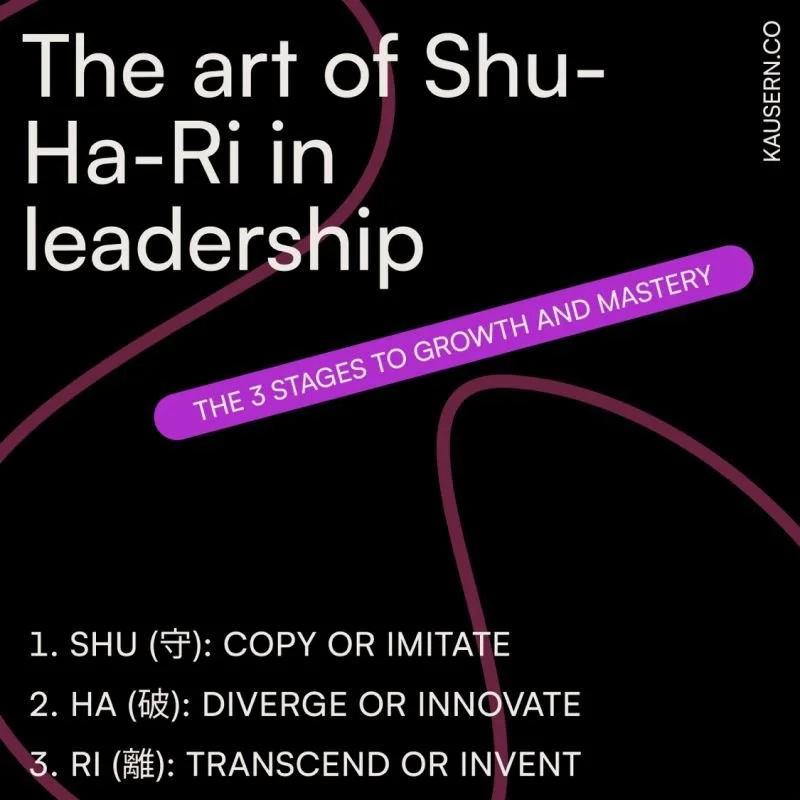The art of Shu-Ha-Ri in leadership
🥋“Mastery is not a function of genius or talent. It is a function of time and intense focus applied to a particular field of knowledge.” - Robert Greene
Shu-Ha-Ri is a Japanese martial art concept, describing the stages of learning to mastery. The word “shuhari” roughly translates to "first learn, then detach, and finally transcend."
These stages represent the evolution of a practitioner from a beginner with a strict adherence to rules and techniques (Shu), through a phase of adaptation and exploration (Ha), to ultimately achieving a state of transcendent mastery (Ri).
Here is how this framework can be applied to leadership.
𝐒𝐡𝐮 (守): COPY OR IMITATE
In the initial stage of Shu, the practitioner’s job is to be a sponge soaking in and learning the fundamentals. The learner submits to the guidance of a teacher or a traditional curriculum, focusing on the established techniques and rules.
Application: A new manager is encouraged to closely follow established leadership models through reading books (eg. the classic Developing the Leader Within You 2.0 by John Maxwell), learn from a respected leader, or join like-minded leaders in The Leadership Pod https://lnkd.in/gdqDZ3AR. One will be exposed to the fundamentals such as effective communication, decision-making, and team dynamics.
𝐇𝐚 (破): DIVERGE OR INNOVATE
As the practitioner advances, they enter the Ha stage. The learner is encouraged to build on the foundations learned and laid in the Shu phase. Practitioners explore and experiment with techniques to suit their own style.
Application: A leader in the Ha stage is encouraged to experiment with different leadership styles for example incorporating aspects of servant leadership and autocratic leadership (https://lnkd.in/d6cfSPe8). In this stage, one should be open to incorporating new ideas and processes to create new value.
𝐑𝐢 (離): TRANSCEND OR INVENT
Practitioners who reach this final stage, Ri, have internalised the principles to the extent that they move beyond the constraints of formal techniques and rules. They exhibit effortless mastery and intuitively express the essence of the art in a way that is unique to them.
Application: A leader in the Ri stage can seamlessly adapt their leadership approach to different situations, demonstrating a rare ability to inspire and guide their team toward extraordinary achievements. Their leadership becomes a natural extension of who they are.
IN SUMMARY, when we learn something new, we first need to get the basics down. Don’t be too quick to immediately experiment with a variety of ideas until you’ve mastered the basics. Eventually, with experimentation, you’ll evolve your own way of doing things.🏆

